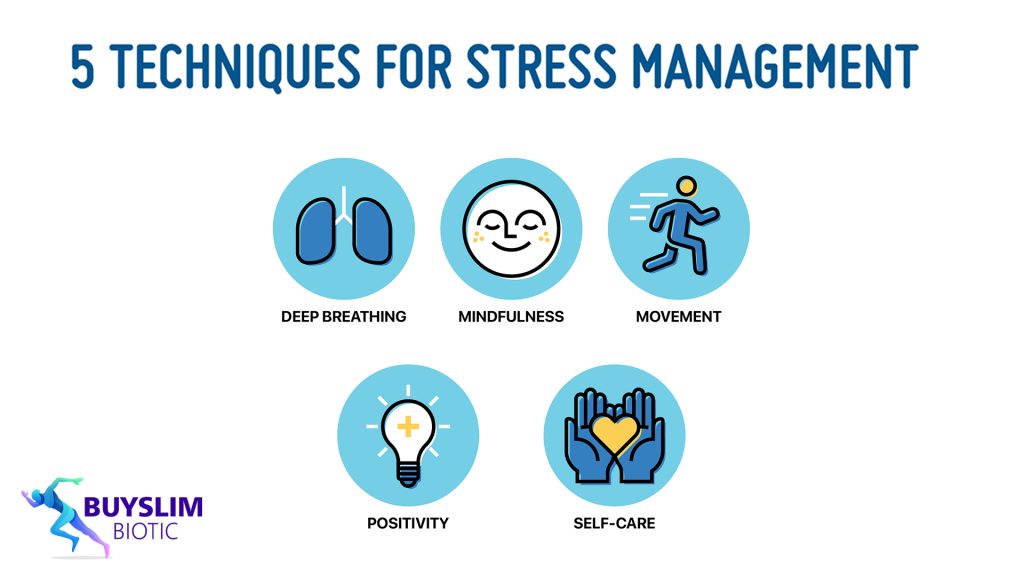From the demands of work to personal responsibilities, the pressures we face on a daily basis can take a toll on our overall well-being. This article aims to shed light on the detrimental effects of chronic stress and how it can put your health at risk. By understanding the impact stress has on our physical and mental health, we can take proactive steps to mitigate its negative consequences.
The Dangerous Cycle of Chronic Stress
Chronic stress is a persistent state of heightened stress response that occurs when we face prolonged or recurring stressors. Unlike acute stress, which is temporary and typically triggered by immediate threats, chronic stress lingers over an extended period. This continuous activation of the body’s stress response system can lead to a dangerous cycle that negatively impacts our health.
Physical Health Implications
Chronic stress takes a toll on our physical well being. The constant release of stress hormones, such as cortisol, can disrupt the body’s natural balance and lead to a range of health problems. Some of the physical health implications of chronic stress include:
Cardiovascular Issues:
Prolonged stress can increase the risk of high blood pressure, heart disease, and stroke. The body’s response to stress can cause blood vessels to constrict, raising blood pressure levels.
Weakened Immune System:
Chronic stress weakens the immune system, making us more susceptible to infections and illnesses. The body’s ability to fight off pathogens and maintain optimal health is compromised under prolonged stress
Digestive Disorders:
Stress can wreak havoc on our digestive system, leading to issues such as irritable bowel syndrome (IBS), acid reflux, and ulcers. The gut-brain connection is strong, and stress can trigger or exacerbate gastrointestinal problems.
Mental Health Consequences
The impact of chronic stress extends beyond the physical realm and deeply affects our mental well being. The incessant pressure and strain can contribute to the development or worsening of various mental health conditions, including
Anxiety and Depression:
Chronic stress significantly increases the risk of anxiety disorders and depression. The constant state of worry, unease, and exhaustion can erode our mental resilience, leading to persistent feelings of sadness and hopelessness.
Cognitive Impairment:
Prolonged stress has been linked to cognitive impairment and memory problems. It can affect our ability to concentrate, make decisions, and perform daily tasks efficiently.
Sleep Disturbances:
Chronic stress often disrupts sleep patterns, making it difficult to fall asleep or stay asleep throughout the night. The resulting sleep deprivation further exacerbates stress levels, creating a vicious cycle.
How to Deal with Chronic Stress?
While chronic stress may seem overwhelming, there are effective coping strategies that can help mitigate its impact on our health. Furthermore, Incorporating these practices into our daily lives can foster resilience and promote overall well-being. Here are some strategies to consider:

1. Prioritize Self-Care
Firstly, Taking care of yourself should be a top priority when combating chronic stress. Engage in activities that bring you joy and relaxation, such as practicing mindfulness, pursuing hobbies, or spending quality time with loved ones. Allocating time for self-care allows you to recharge and rejuvenate, reducing stress levels.
2. Establish Healthy Boundaries
Secondly, Setting boundaries in various aspects of your life can help manage stress more effectively. Learn to say no to excessive demands and delegate tasks when possible. So Prioritizing your well-being and establishing healthy boundaries can prevent feelings of overwhelm and burnout.
3. Practice Stress-Relieving Techniques
Incorporating stress-relieving techniques into your daily routine can significantly alleviate the burden of chronic stress. Consider trying:
Meditation and Deep Breathing: Engaging in mindfulness meditation and deep breathing exercises can help calm the mind and activate the body’s relaxation response.
Regular Exercise: Physical activity releases endorphins, which are natural mood elevators. Engaging in regular exercise, such as walking, jogging, or yoga, can effectively reduce stress levels.
4. Seek Support
Don’t hesitate to reach out for support when dealing with stress. Whether it’s through confiding in a trusted friend or family member or seeking professional help from a therapist, having a support system can provide guidance, validation, and coping strategies.
Chronic stress poses significant risks to our physical and mental health. By understanding its implications and implementing effective coping strategies, we can mitigate its adverse effects. Finally, Prioritizing self-care, establishing healthy boundaries, practicing stress-relieving techniques, and seeking support are crucial steps towards managing stress and promoting overall well-being.




